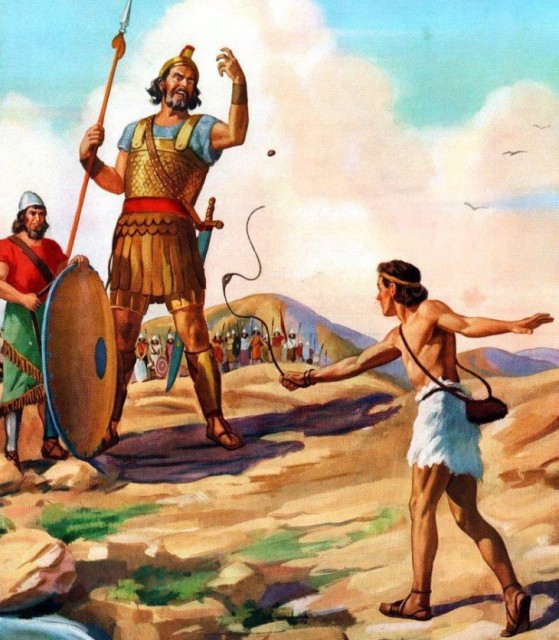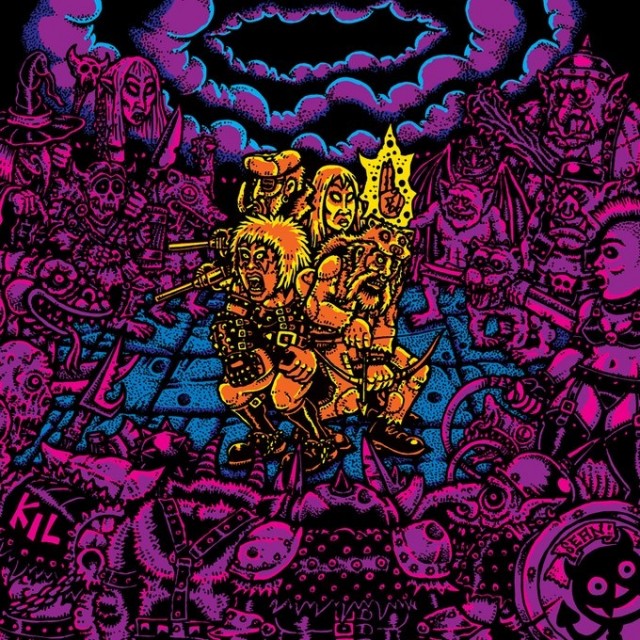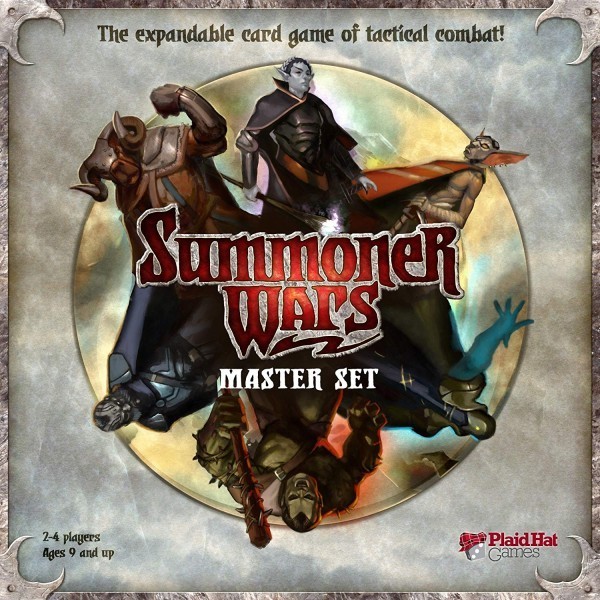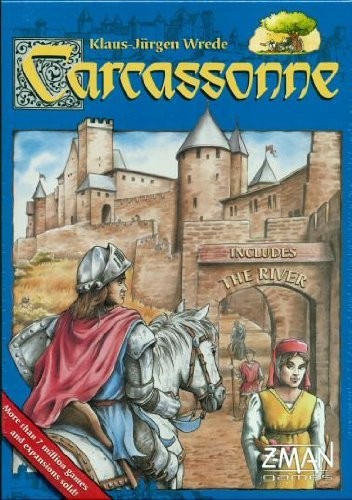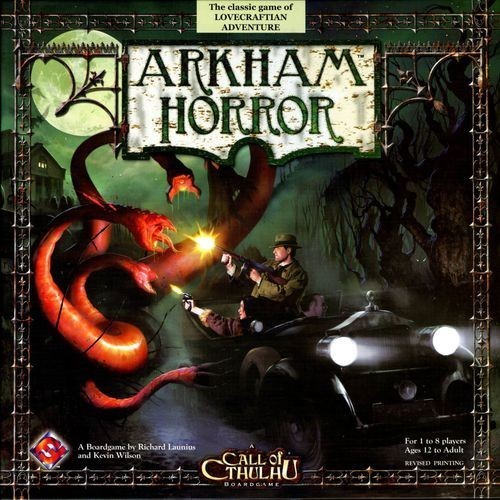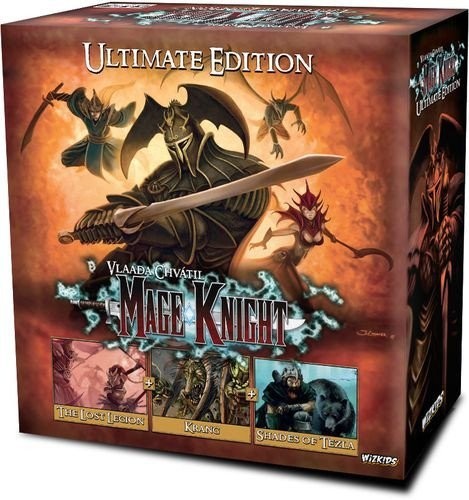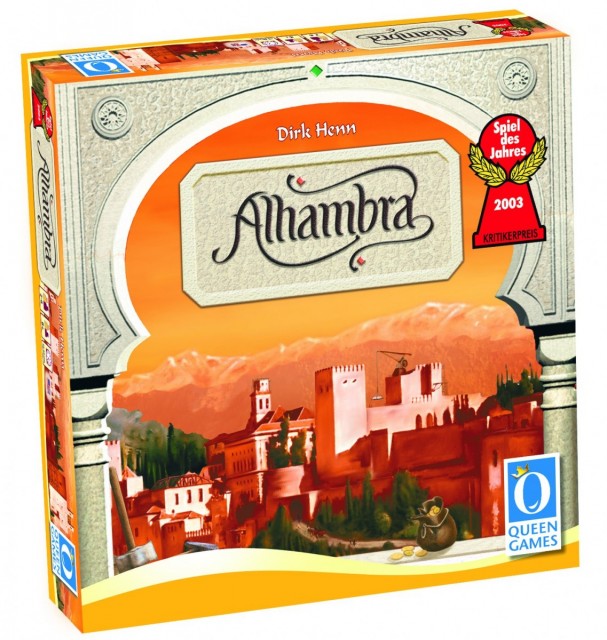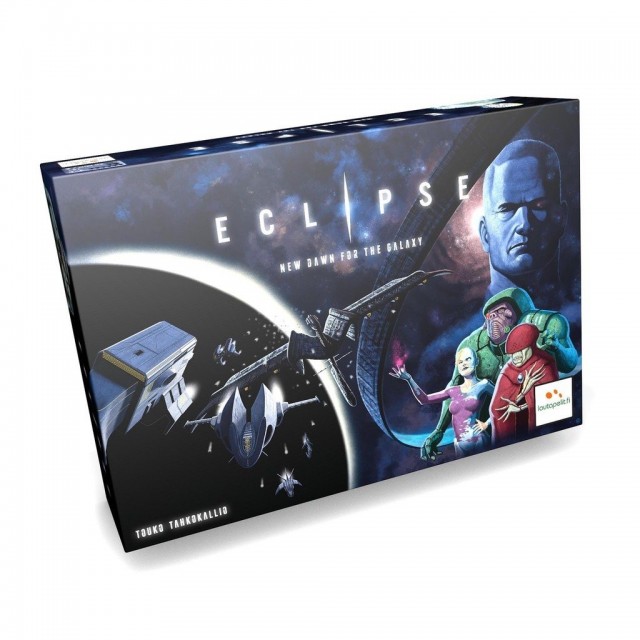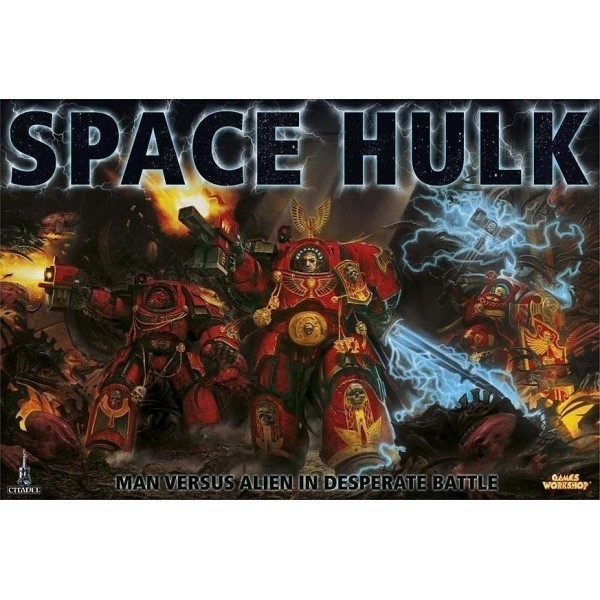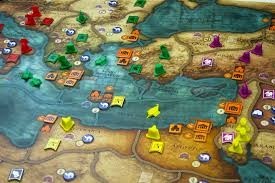 You may recall a column from a couple of weeks back which sprang from a discussion I'd been having with Pedro Silva.
It's proved a pretty rich vein in which to mine for column inspiration - in the latest episode we returned to the vexed
question of how ill-defined the concept of "Ameritrash" still is, in spite of the term now being fairly well known
amongst gamers. That in turn wedded together with some thoughts I'd been having about what binds us, here on this site,
into a community which isn't a straightforward question seeing as we seem to have gathered quite a few Euro-fans over
the course of our existance. So, even though it might have looked like we'd left the Ameritrash definition argument
behind, I'm going to dredge it up again and perform a few necromantic rituals over its decomposing corpse. Time to get
the nostril rub out, gentlemen.
You may recall a column from a couple of weeks back which sprang from a discussion I'd been having with Pedro Silva.
It's proved a pretty rich vein in which to mine for column inspiration - in the latest episode we returned to the vexed
question of how ill-defined the concept of "Ameritrash" still is, in spite of the term now being fairly well known
amongst gamers. That in turn wedded together with some thoughts I'd been having about what binds us, here on this site,
into a community which isn't a straightforward question seeing as we seem to have gathered quite a few Euro-fans over
the course of our existance. So, even though it might have looked like we'd left the Ameritrash definition argument
behind, I'm going to dredge it up again and perform a few necromantic rituals over its decomposing corpse. Time to get
the nostril rub out, gentlemen.
One thing we've become pretty infamous for around here in spending time bitching about what we don't like rather than celebrating what we do like and to be honest it's a viewpoint which has some validity. Whilst criticism of perceived negatives is important in driving things forward I think that this overwhelmingly negative approach is unfortunate for a number of reasons. It makes us look like the sort of people who criticise endlessly without proposing solutions. It drives away new gamers. It does little to actually encourage people to try the sorts of games we love. We all know this yet we all continue to persist in the same small-minded attitude. The reason, I think, is because we aren't entirely sure what we stand for - how can we go about celebrating what it is we love in games when we don't know what that is? Other sub-genres in the gaming world have much clearer definitions than we do of what they want from a game - and Euro fans seem to have a particularly crystallised understanding of the blueprint for a perfect game, not least I suspect because they like logical games and logical games by definition lend themselves to the application of a fixed ideal of quality much more easily than other game styles.
We on the other hand are at the opposite end of the spectrum. Take a look at some tiles popularly considered Ameritrash and you'll find three major strands. Firstly, multiplayer conflict games and two-player fantasy/sci-fi wargame hybrids. Secondly you've got role-playing/board game hybrids, dungeoncrawl and adventure and exploration games. Thirdly - and the smallest category by far - are "take that" negotiation and screwage games. Look at those categories and what common thread do you see running through? Nothing? Look harder ... still nothing? Well, the reason is because there is virtually nothing uniting these games. About the only thing I can see is a particular preponderance of fantasy and science-fiction themes and that's a pretty weak thread. A couple of weeks ago I sat down to a game of Cosmic Encounter with a group including a huge fan of dungeon games. I thought he'd be bound to enjoy the game but it turned out he hated it, whilst everyone else had a great time. Discussing it with him afterward it turned out he couldn't stand the negotiation element of the game and from that I can only deduce he'd probably dislike most multiplayer conflict games and screwage games - and as a fan of exactly those kind of games I'll happily confess that I in turn find it hard to understand what drives people to play a lot of the adventure boardgames on offer nowadays. What hope do we have a meaningful understanding of what we love in games when gamers from the two major threads in "Ameritrash" can't relate to each other over what it is they enjoy?
The argument that what these games share is a particular level of mechanical and thematic integration and that what we seek out in games is a strong theme has always rung hollow to me. It falls down when examined from a number of different angles. There have been several columns on this site in the past arguing that the idea of "theme" in a game is in fact empty because a game is always an abstraction - a huge abstraction at that - and that gamers always end up playing the mechanics in the end. If we really want theme why aren't we all off playing Wargames which, with their strong simulationist elements, are arguably the most thematic games of all? If we look at Eurogames which are commonly lauded on this site you'll find many which are just as theme-less as any other such as Ra, and others such as Through the Ages in which the theme falls apart on close inspection. We probably spend more time savaging games for being transparent mathematical exercises than we do complaining that they lack theme - and games such as Power Grid and Amun-Re which are both relatively thematic and effeciency exercises demonstrate that these are separate facets of design. We might get closer to the mark by substituting, as many of us have done at various time, "narrative" for "theme" as a unifying principle but even this isn't entirely satisfactory. Although it's true that most games grouped under the AT umbrella do generate a strong narrative, it's equally true that a little imagination can enable one to construct a narrative out of many of the driest, most objectionable Eurogames.
I'll go off on a tangent now to discuss something else which was briefly touched on during some forum threads recently. We spend a lot of time here making fun of the "beards and bellies" stereotype of gamer with no sense of fun and no personal hygiene. Whilst I've laughed along with everyone else one thing I've always found slightly strange about this stereotype is the way we constantly apply it to Eurogamers. Now - I've spent years on the Warhammer tournament circuit and, more recently, I've spent a reasonable amount of time gaming at Euro-friendly club nights and I can attest without a shadow of a doubt that most Eurogamers don't fit that stereotype and that there are plenty of fantasy and science fiction gamers who do. So why do we continue to apply it to just Eurogamers? It's an especially bizarre question given that in the forum threads I mentioned previously, people popped up to acknowledge that the existence of the anti-social gamer was as much a bane in our neck of the woods as it is in any other aspect of gaming. In point of fact it was encountering an endless procession of gamers like that that finally drove me away from RPGs because their behaviour seemed to me particularly damaging to what is almost entirely a social and imaginative form of game. Indeed I've found board gamers to be, if anything, by far the most well-adjusted group of hobby gamers there are.
So having raised two apparently unrelated issues, how can there be a shared answer to both, and what is it? My thinking is that "Ameritrash" as we understand it isn't actually a label for a style of game at all. Rather, it's a label that should be applied to a particular type of gamer. The sort of gamer who is attracted to this site. The sort of gamer who doesn't take games too seriously and who enjoys competition and conflict but isn't that bothered about winning. The sort of gamer who doesn't care much about authority figures and will houserule whenever and whatever they like regardless of official instructions from designers and publishers. The sort of gamer who mainly plays games as a way to structure their social time with friends and who values games that encourage the social element. I could certainly go on, but there's little point - you get where this is going. Seen from this point of view, the concept of Ameritrash can cut across the problems I've been discussing. The reason we seem to like such a diverse rag-bag of games is because there is no real unifying factor about what we like - all we know is that we don't like head-down, silent games that don't function for us as our beloved social outlet. The reason we mock the unfortunate smelly gamer stereotype is because those are people we encounter whose expectation of a game runs contrary to our own and who, as a result, can ruin a game session for us in astonishingly short order. We conflate this stereotype to the Eurogame because doing so allows us to conjure up an image of the nightmare gaming session - a bunch of sad nerds playing a mathematical spreadsheet game in absolute silence. It's a useful image to us because we can use it as an instant rallying cry, an immediate reference point that we can all relate to and share.
At first glance this realisation doesn't actually help us overcome the basic hurdle I introduced at the start of the article - if we're a shared mindset who finds solidarity in discussing games we hate because there's precious little uniting the games we love, what hope is there for us finding a more positive form of commentary? Well, having reached this understanding I think there's a path forward. It comes from us trying not to celebrate what we like in games because that's a disparate group of tastes, but from spening time celebrating what we love about the experience of playing a game because that's where our shared tastes lie. It's not something that's discussed very often - for some reason session reports play second fiddle in our affections to reviews or opinion pieces and too many gamers seem to want to spend the time deconstructing the mechanics in the hope of building a perfect game or fretting over why Mr. Average doesn't like boardgames than they do understanding what's fun - whatever that means to you - about playing boardgames. And that's where our roots lie. So that's where we should be.
 Games
Games How to resolve AdBlock issue?
How to resolve AdBlock issue? 
